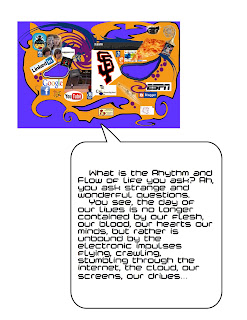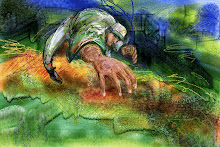Monday, December 10, 2012
Great deal from Plasq
Plasq, makers of ComicLife, continues to make strong statements in education. Recently, they offered a 25% discount on their already incredibly low priced products when partnering with the My Hero project. My Hero is a wonderful organization well worth exploring, as is Comic Life. I use Comic Life in the classroom to teach digital citizenship, and will be expanding my use into other projects.
Here are links to these two fantastic groups:
http://plasq.com/
Saturday, November 17, 2012
Curriculum design in the 21st century continues to be a moving target. As we combine best pedagogical practices with ever more amazing and powerful tools in a media drenched age, it becomes increasingly more challenging to focus on student learning in specific and focused ways.
This image is inspired by the thought of one of my digital super villains creating a virus that is personified on the net by dragon iconography. I am finding that the digital citizenship/comics creation unit I am growing is the most satisfying work of my teaching career. Its combination of personal passion and deep teaching opportunities inspires me every day I get to work with it.
Monday, April 16, 2012
Writing on the Wall

I teach a digital citizenship unit inspired by my work in collaboration with Common Sense Media. In this unit, I posit a near future time where my students are transformed (sometimes I say how, for instance, a nanobiology accident…) into superheroes to combat digital villainy taken to an extraordinary level. Here is my vision of a virus attacking raw code in the virtual environment of software language. I call it "Writing on the Wall".
Saturday, February 25, 2012
Deep into the New Year


Deep into the New Year
February finds us over the 100 day mark in the school year, a time when potential doldrums hit both teacher and student. How are we fighting off the mid-year "blahs"?
I make sure that my classroom is working on their most exciting project to date, and throw more multimedia into the mix, video teases, podcast nuggets, etc. It is never too early to consider what one is going to showcase for parent visitations (Open House) and how one will display student learning.
I've been inspired by my students at SFSU and my colleagues to continue to risk new ideas and curriculum, even as I approach the twilight of my career. Shout out to you folks.
The "360" project is a prime example. Inspired by the work of San Francisco artist, Pep Ventosa, I asked students to take at least 30 digital photos using themselves as the subject, and layer them in Adobe Photoshop Elements. The results were spectacular:
Saturday, November 19, 2011
Discerning Importance

We just finished a round of student-led parent teacher conferences at our middle school. What struck me was the common thread of my students, echoed yesterday when we met as a group with another advisory, that they had trouble discerning the level of importance of assignments from their teachers. This has led to increased stress, and anxiety, and lowered performance, often on the most high stakes assessments.
At the same time, I am studying for the California Teachers of English Languages test, a test that effects my professional credentialing. As I read numerous textbooks and educational tracts on language acquisition, cultural differentiation and sociopsychological transitions, and then take the sample tests, I am struck by the disconnect between the testing structure, how we as teachers model testing anxiety, and how we hold dearly to types of assessment that don't really show learning. I am good at test-taking, and will pass this hurdle in my career, but don't trust the process, or its intended end. However, the reading does help me rekindle my interest in personal professional development, and how to best approach planning for my units. I never give tests, as mine is a project based classroom. I do need to make more frequent checks for understanding, do need to work on ways to give more immediate feedback, and do need to continue to vary the ways students can show both what they learned and how they learned.
The image is an example for my sixth graders who have finished a mask comprised of images of their lives (Adobe Photoshop Elements). My earlier post on totems is a different version of this lesson. Those who have finished then had the option of making the mask talk, using ComicLife to add the speech bubbles. This lesson then leads to a meta-unit on digital citizenship where the students will create superheroes to tackle immense issues involving the integration of technology in the life of the global culture we all live in.
Monday, September 19, 2011
Just came from an amazing day in Mountain View at the Tech Museum.
Wisdom 2.0 for Youth left me with a host of new ideas to incorporate mindfulness practices in my classroom.
Wisdom 2.0 for Youth left me with a host of new ideas to incorporate mindfulness practices in my classroom.
Tuesday, June 28, 2011
Comics in the Classrooms
I've just been confirmed as a speaker, part of a panel, at Comic Con on Saturday, July 23. I use comics, the planning, writing and illustration as a vehicle for digital citizenship education through a super-hero lense. Pretty excited about the possibilities, and, of course, being in San Diego for the greatest show in this genre!
Subscribe to:
Posts (Atom)


